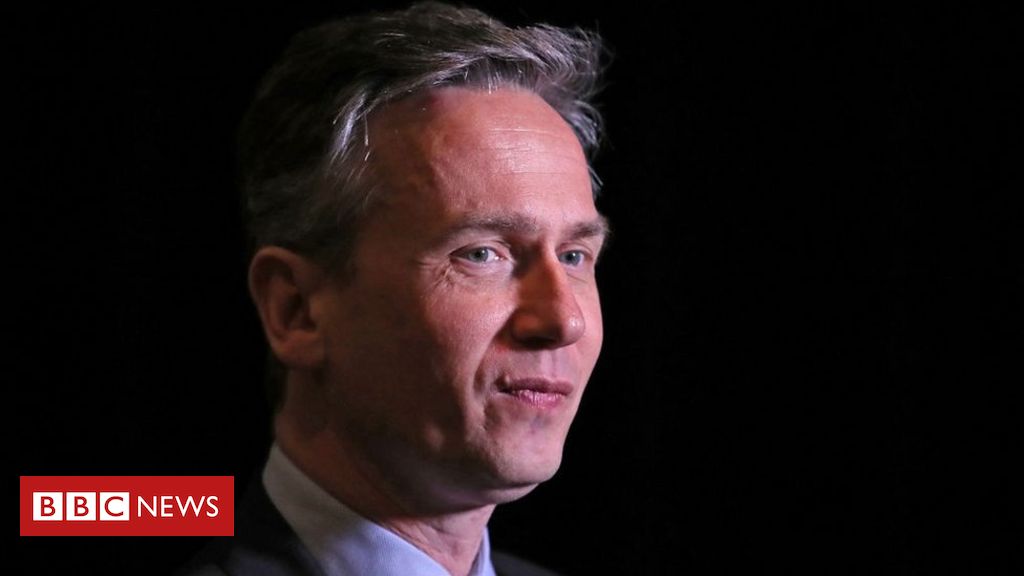Pressure is mounting on Rio Tinto’s boss after the Church of England added to condemnation of the mining giant’s destruction of an Aboriginal site.
The issue will be discussed at a Rio board meeting on Thursday amid calls that heads should roll.
An ethics director on the Church’s pensions board stopped short of calling formally for Rio chief Jean-Sebastien Jacques to resign.
But he told the BBC that Rio’s response so far was inadequate.
The Church’s pension fund has a small stake in Rio.
Adam Matthews, director of ethics and engagement on the pensions board, told the BBC’s Today programme that the destruction of the 46,000-year-old cultural site in Western Australia had left the company in “a dreadful position”.
Rio Tinto, one of the biggest companies listed on London’s FTSE 100, says it had permission to blow up two caves at Juukan Gorge.
But after an internal inquiry, the world’s second largest miner took measures that included cutting bonuses for directors, including Mr Jacques, and attempts to repair relations with Aboriginal communities.
However, Mr Matthews said he had told Rio chairman Simon Thompson that it was “clear investors don’t feel the measures the board has currently outlined are significant”.
He told the BBC that Thursday’s board meeting will “be a test” of Rio’s reaction to the growing outrage, adding that “we know there is some disquiet” among other directors at the company’s response so far. There have been reports of boardroom rows.
Mr Matthews said Rio’s internal inquiry had revealed it received warnings about the cultural significance of the site, but the company proceeded with the destruction anyway. “The inquiry revealed a litany of mistakes,” he said.
‘Deep regrets’
He said Rio’s approach to the site, where the company is expanding iron ore production, displayed an attitude widespread in the mining sector, and had led to indigenous communities being blighted throughout the world.
It was revealed last week that in the days running up to the caves’ destruction in May, Rio hired lawyers in case opponents tried to seek injunctions to stop them. Although Rio said it had permission for the work under Aboriginal heritage laws, critics say it suggests the company was well aware of the site’s cultural importance.
Rio has a section on its website devoted to its response to the destruction. It says: “We deeply regret the events at Juukan Gorge and have unreservedly apologised to the Puutu Kunti Kurrama and Pinikura people. The destruction of the rockshelters should not have happened, and we are absolutely committed to listening, learning and changing.”
But the apology has not assuaged many investors in Australia, who have strongly criticised Rio. AustralianSuper, the country’s largest pension fund, has said financial sanctions against directors are not enough.
And the Australian Council of Superannuation Investors said directors’ accountability needed to go “further than just a financial penalty”.
Rio has also been accused of misleading a parliamentary inquiry into the destruction.
Mr Jacques, aged 48, has been Rio’s chief executive since July 2016. Last month, he received strong backing from the chairman to lead the company through the crisis.

